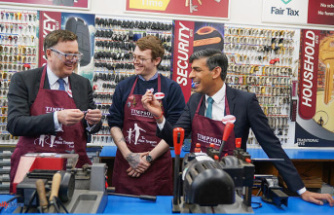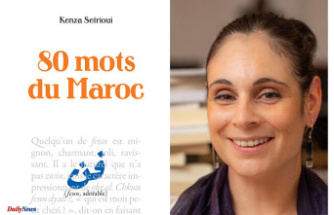With the help of pocket money, children with small sums of money learn how to use money responsibly. The amount is not decisive. What matters instead.
Should I give my child pocket money? And if so how much? These are questions that every parent probably asks themselves at some point. Possibly in those moments when the children are whining for an ice cream. In such cases, the reference to one's own money quickly relieves the parents. But what is pocket money good for?
A representative Forsa survey shows that in 2022 slightly more than half of all parents will regularly pay their children pocket money. Parents make the amount of pocket money largely dependent on the age of the children (63 percent).
Youth welfare offices and the family ministry support an age-related amount that increases with age. According to the survey, the average amount for elementary school students is currently 3.80 euros per week. The German Youth Institute (DJI) recommends a slightly lower amount. For first graders it should be around 1 to 1.50 euros, for the oldest elementary school students a maximum of 3 euros per week.
Families living on very little income should be open with their children about why they don't get as much pocket money as their friends. "Have a conversation with your children and explain: We don't have that much, but we'll make sure that you still get a small amount," says Alexandra Langmeyer, head of the DJI's Living Situations and Living Environments group. It is not the amount of pocket money that matters. It is much more important that children receive a small sum at regular intervals without being asked, which they can freely dispose of.
Because the central aspect of pocket money is that children learn how to handle money as early as possible. But that only works if they are actually allowed to use it. Wishes are given a value and the children quickly realize that the weekly amount can only be spent once. So if they have a bigger desire, it may mean they have to save.
According to experts, those parents who decide against pocket money often justify it by saying that the small amounts cannot be used to buy anything of value. Instead of the positive experience of being able to fulfill a wish, the child experiences frustration. For example, even a children's magazine usually costs more than four euros and is therefore above the typical weekly amount or the recommendation.
However, Christian Heck from the child support and youth protection department of the Stuttgart youth welfare office sees that even the smallest amounts make sense: "Sometimes it is difficult for us as adults to bear what children spend money on. But these are the important experiences that we have to allow." Because children are better at making these experiences when they are young with small amounts of money than later with larger amounts, says Heck.
Parents should therefore not dictate to their offspring what they can buy with their pocket money. According to the German Youth Institute, children are particularly happy to spend the amount on toys, magazines or sweets and young people on fast food, going out and their mobile phones. The biggest gender difference is that girls tend to prefer clothes and boys tend to prefer everything to do with computers.
After all, a quarter of all parents link the payment of pocket money to conditions such as good grades or certain behavior. Experts disagree on this: Money can certainly be an incentive to make an effort. In the adult world, too, there are later salary bonuses for special achievements. A parallel or a learning effect could definitely be seen here. But what if the child tries hard and still doesn't get a good grade? Then it is doubly penalized.
From a professional point of view, Christian Heck therefore does not consider conditions to be sensible: "Don't link the security of regular pocket money with performance. Think back to your own childhood: Were you free to dispose of your pocket money? What would you have wished for?" The task of the parents is to provide advice during the learning process and to impose as few conditions and restrictions on the child as possible.
The small steps are particularly important in learning how to handle money responsibly. Financially competent people know that managing money and the associated financial independence are important for a self-determined life. The earlier the offspring learns this, the better.












